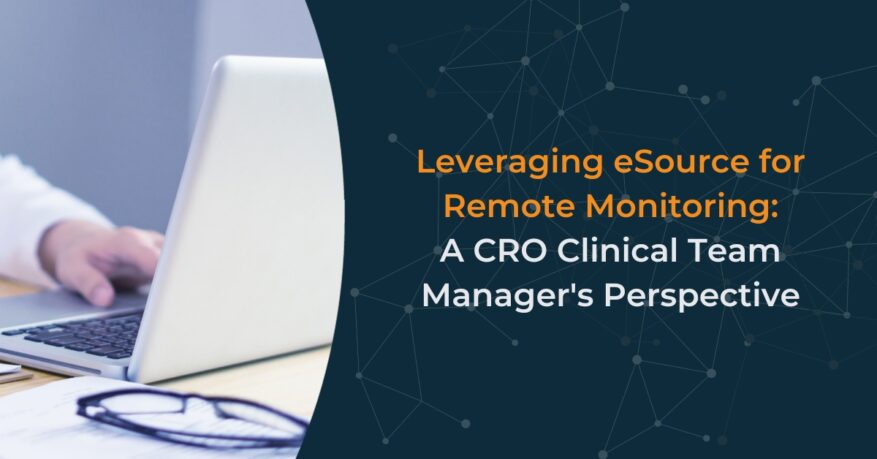A Look into Alzheimer’s Research with Dr. Craig Curtis

How did you get into clinical research?
During medical school, I completed several research externships and became very interested in research, but did not think of it as a career. After graduating and moving to Florida for residency, I met a local physician who was a principal investigator and owned a clinical research site. We became friends and I moonlighted for him as a sub-investigator while still in residency. Upon completing residency, I took a job as an Emergency Medicine attending at a local hospital. I remained highly interested in research but was not sure how to make it a career. In 2006, while still working in the Emergency Department, I reconnected with a friend working at a clinical research site and decided to open Compass Research. We decided that Compass Research would be a research site that would tackle a wide range of indications. We started working on trials for pain and internal medicine, but quickly expanded to other areas of research.
So how and why did you get involved in Alzheimer’s clinical research?
Since working in the emergency room, one of my favorite procedures has been collecting spinal fluid. In 2005 and 2006, collecting spinal fluid for Alzheimer’s research was still in its infancy. The research industry was looking at various biomarkers for Alzheimer’s and spinal fluid was one of them. At that time, there was high interest in using spinal fluid biomarkers to help make the diagnosis, but there was still significant variability in the results. As research into spinal fluid for AD continued, word got around that Compass Research was able to provide quality research subjects with spinal fluid results. We quickly became one of the top Alzheimer’s sites in the country and the more patients I saw, the more I fell in love with the families, the condition and the research surrounding it. I saw what the patients were going through — a constant decline in memory — and I wanted to dedicate my life to helping these patients and their caregivers. The caregivers suffer terribly when caring for their loved one and Alzheimer’s is very much a caregiver’s disease as well.
Can you tell us more about the nature of Alzheimer’s Disease and clinical trials?
In individuals with Alzheimer’s, most researchers believe the disease starts with the building up of an abnormal protein called amyloid around the brain cells 20 years prior to symptoms. For example, if someone in their late 60s begins exhibiting symptoms of mild memory loss due to AD, the “disease” actually began about 20 years prior. This will slowly get worse over a 3-5 period, which is known as mild cognitive impairment (MCI), and caregivers will usually recognize that something is wrong. During this 3-5 year period, the memory impairment gradually worsens and becomes significant enough to impact daily functioning – this is when they are clinically diagnosed as having Alzheimer’s Disease.
To understand how a trial works, research staff should understand more about the disease itself, so I do my best to first educate my staff. Staff training is a crucial piece of the trial puzzle and should continue throughout the entire trial. AD trials are very complicated and we have to constantly evaluate how we are performing for the subject. We must constantly look out for the health and safety of every trial participant, especially vulnerable subjects with AD. Most of the trials looking at therapies for patients with mild cognitive impairment are 18 months long, double-blind and very complicated.
What is the average number of patients enrolled per site?
Most sites will try to enroll 6 patients and the screen fail rate is high in Mild Cognitive Impairment (MCI) studies. To find 6 good subjects can sometimes take evaluating up to 30 subjects, so the majority of subjects “screen fail” out of the trial due to various reasons.
You have experience in many fields of research. What is unique about Alzheimer’s trials when compared to other areas?
- Rating scales are incredibly important. This means that raters at each site must have experience. Some of the scales used in clinical research are rarely used in clinical practice so we often run into a chicken and egg problem, where it’s hard to find practitioners who also have rating scale experience.
- In determining whether a participant meets the eligibility criteria of a study, sites will need individuals experienced in making an Alzheimer’s diagnosis and differentiating it from other cognitive issues that elderly people may have (e.g., normal age-related memory loss). Geriatricians can make excellent principal investigators in this field for that reason.
- Subjects will take longer to complete procedures, which means the visits will be inherently longer, even for the same schedule of events.
- Participants often have extensive medical history and a long list of concomitant medications.
- Prescreening is key. Sites involved with Alzheimer’s trials often have an IRB approved shortened consent form, usually 2-3 pages long, that is signed first. This is so investigators can assess whether patients are initially eligible to participate.
- Most scales and assessments will be done on paper.
What are some of the biggest challenges with conducting an Alzheimer’s trial? Is it recruiting participants?
When research started targeting patients with MCI, study recruitment became difficult. When patients are in the MCI stage, they usually don’t realize they have the disease and family members are still in denial. It is also difficult because we usually have to identify participants in the late stage of MCI, meaning the fourth or fifth year.
For trials involving patients with moderate disease, recruitment is not usually difficult and caregivers are motivated to pursue trials. These patients are willing to give, give and give because they want to help the next generation.
How have Alzheimer’s trials had to adapt in the COVID era?
The majority of sites have continued to conduct visits regularly, meaning in person, and most patients have been willing to visit sites due to the severity of their disease. While sites may try to screen potential participants for medical history and rule in or out basic criteria over the phone, face to face visits are preferred. This is largely because cognitive rating of subjects is difficult to perform over Zoom calls and most cognitive scales have only been validated face to face. As we continue to navigate through COVID, it is essential that sites work hard to build trust with their patient community. Sites need to show patients and their caregivers what they are doing to limit risk.
What advice do you have for sites interested in getting involved with Alzheimer’s research?
For sites that are interested in getting involved, it is definitely possible to start and to do it well. However, research sites should start slow because these trials are complicated.
Before starting up a trial, ensure that your site has the following qualified personnel:
- A qualified rater. Consider bringing on a PhD or Master’s Degree level person for this. Many with PhD’s/Master’s will be more familiar with the assessments and questionnaires.
- A strong neuropsychologist.
- A pharmacist and/or an infusion nurse. Many studies involve infusions of monoclonal antibodies.
Where do you see Alzheimer’s research in the future?
Don’t take this the wrong way but I hope there is no future – I hope that we discover a cure for Alzheimer’s tomorrow and make future trials unnecessary. But since I highly doubt this will happen, we must continue to advance potential therapies from the bench to the bedside. We have many new exciting therapies currently in clinical trials, and one of these could be the next approved treatment. One potential disease modifying therapy, aducanumab, is in line for consideration. Aducanumab is currently under FDA review and a decision is expected in March 2021. If the therapy is deemed effective and is approved, it could make existing trials more challenging to recruit as patients would have an approved disease modifier to consider first. While an approved therapy would make recruitment for ongoing trials more difficult, it would be a tremendous victory for both patients and their families.
Dr. Craig Curtis co-founded Compass Research, a Florida-based clinical research site network. Dr. Curtis has over 20 years of clinical trials experience across many therapeutic areas including Alzheimer’s disease, general medicine, psychiatry, neurology, analgesia and early clinical development. Dr. Curtis has served as a medical monitor on both diagnostic and therapeutic Alzheimer’s trials and continues to work as a consultant within the clinical trials industry.




